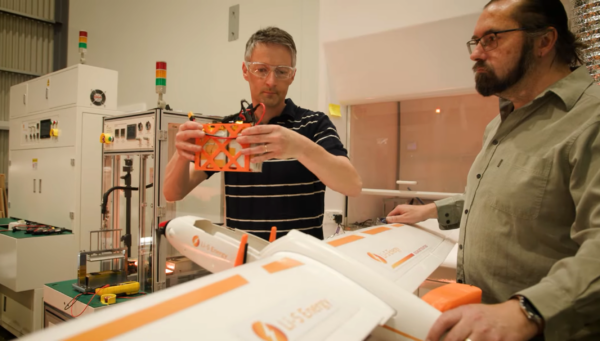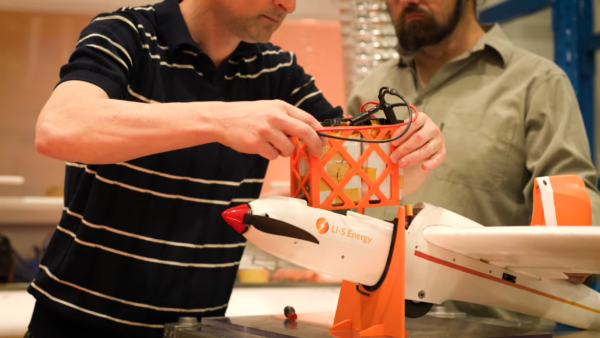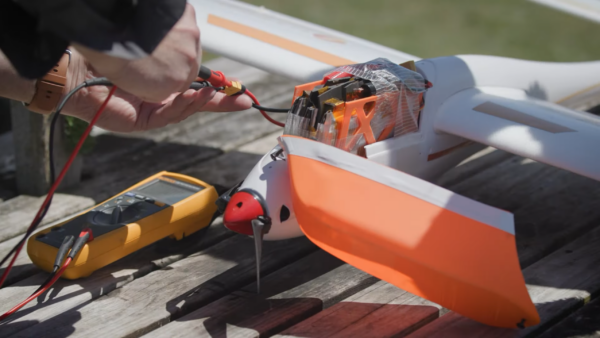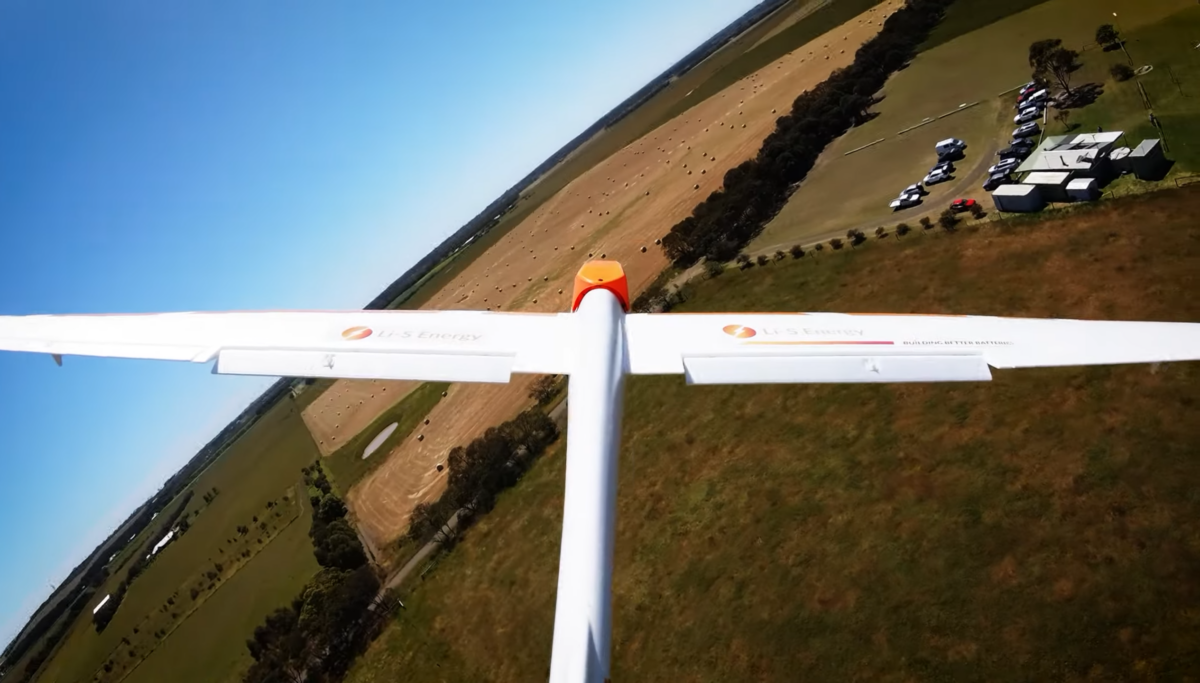Brisbane-headquartered battery technology company Li-S Energy has successfully completed test flights of an uncrewed aerial vehicle (UAV) powered by a twelve cell, lithium sulfur battery pack.
Focussed on the key target markets of drones, eAviation, security and defence, where reduced cell weight, extended range and longer flight times are highly valued, the test flights delivered a clear demonstration that the company’s Li-S cells can be configured into a battery pack, integrated into a fixed wing UAV, and successfully flown in a typical flight profile that includes take-off, ascent, level flight, aerial manoeuvres and safe landing.

Image: Li-S Energy
Li-S Energy Chief Executive Officer Dr Lee Finniear said the company had recently announced achieving cell energy density of more than 450 Wh / kilogram on its new lithium sulfur cells.
“This month we are demonstrating our cells in a full battery pack, successfully powering an uncrewed aircraft in flight profiles typically required by our target markets,” Finniear said.
“This is an outstanding achievement by the entire Li-S Energy team that accelerates us toward the integrated battery pack needed for our “Dawn-‘til-Dusk” drone program, and clearly demonstrates to our target markets that Li-S Energy is a credible power delivery solution for drone, eAviation, and security applications.”

Image: Li-S Energy
The Li-S Energy team built the 6S2P battery pack using twelve 10Ah Li-S cells manufactured on the Phase 3 production line, with a nominal pack voltage of 11.4 V, a capacity of 20 Ah, and a weight of 550 grams at a pack level.
The pack was then integrated into the airframe of a 2.4 metre wingspan, fixed wing, single motor uncrewed aircraft, and successful ground tests were completed. Test flights were carried out using both catapult launch and hand launch methods, with each flight completed successfully.
The flights were not an endurance test, with total air time being 30 minutes, but flights were completed with a single battery pack and no intermediate recharge.
The battery pack was only partially discharged at the end of the tests. Importantly, on return to the Li-S facility, the battery pack recharged successfully.

Image: Li-S Energy
Li-S Energy Chief Technology Officer Dr Steve Rowlands said the results of the first demonstration of the GEN3 cells at a pack level were pleasing.
“The cell parameters from our production line are very consistent, which, when combined with our semi-solid-state chemistry, means that balancing the cells in the pack has been far less complex than with traditional lithium sulfur chemistries,” Rowlands said.
“Whilst we are still engaged in production development and expect to continue to improve our cell performance over time, this is a milestone achievement to show how our technology can be integrated successfully into a UAV.”
The company expects to continue to use the current UAV platform to test pack level performance in practical scenarios, including flight duration testing which will feed into the Dawn-‘til-Dusk drone development and into other partner programs.
The Dawn-til-Dusk program is a partnership with Queensland-based zero-emissions aircraft company V-TOL Aerospace and Wagga Wagga-headquartered commercial perovskite solar cell developer Halocell, to design a drone that integrates Li-S Energy’s next generation batteries and advanced solar cells that can be deployed from dawn until dusk without landing or recharging.
This content is protected by copyright and may not be reused. If you want to cooperate with us and would like to reuse some of our content, please contact: editors@pv-magazine.com.








By submitting this form you agree to pv magazine using your data for the purposes of publishing your comment.
Your personal data will only be disclosed or otherwise transmitted to third parties for the purposes of spam filtering or if this is necessary for technical maintenance of the website. Any other transfer to third parties will not take place unless this is justified on the basis of applicable data protection regulations or if pv magazine is legally obliged to do so.
You may revoke this consent at any time with effect for the future, in which case your personal data will be deleted immediately. Otherwise, your data will be deleted if pv magazine has processed your request or the purpose of data storage is fulfilled.
Further information on data privacy can be found in our Data Protection Policy.